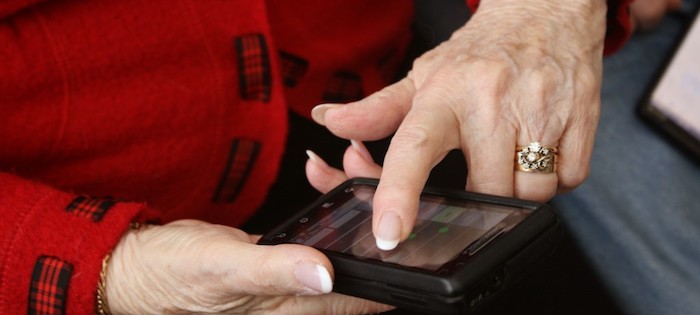“I’m tired! I’m scratchy! I think I am going mad!”
Have you ever said this to yourself while caring for someone? If you ever start to feel like this, it may be sign that you need to take some time out.
You see, looking after someone can be all consuming. Very few people actually master it and keep calm throughout the whole experience.
Being “tired and scratchy” or being curt with your loved one is not a sign that you don’t care anymore… It’s a sign that your rubber band has been stretched to its limit.
For your benefit and that of your loved one, you need to act before you reach this stage.
Becoming Irritable?
Although it may feel like it at times, it’s important to remember that you are not going mad.
The thing about being a sole carer is that stress builds up very slowly. You may not realize you’re becoming over stretched until you become unwell yourself and by then you find it difficult to recover.
You may be a person who doesn’t get sick and suddenly you find you are getting headaches, colds, insomnia – which are all just physical signs of stress.
Even people who are naturally very calm may find themselves becoming anxious, shouting at their loved one or other people for no reason, or even crying a lot.
So if these are all signs that your body needs a break… what do you do in order to avoid this?
Coping With Stress
The trick to avoiding a burnout from all the stress that comes with caring for a loved one is to plan ahead and have external help available at your ready request.
Each time I help a person that is just starting out with caring for a family member, I want them understand that it may be inevitable for them to reach a point where it’s just too much for them to handle by themselves.
In order to reduce the risk of that happening, and then preventing the stress signs mentioned above, it’s important to go into this journey with this knowledge.
That means taking the appropriate measures to have someone ready to get involved in the process when you and your loved one need it.
Having a hard time dealing with changes in personality?
Download our free Challenging Behaviors Guide to discover how you can figure out what’s going on, maintain your relationship and de-stress each day.
Preparing To Let Someone Else In
I know it’s hard to let someone else take care of your loved one. After all, perhaps no one could do the job as well as you.
You know their likes and dislikes, their little idiosyncrasies that have evolved over the years…
It’s been almost a lifetime of knowing them and living with them…
But everyday life is one thing and suddenly becoming the sole carer for this person is another.
No matter how much you love them, this new role is a very challenging one.
The person may change and a new personality evolves that you cannot cope with.
In spite of a lifetime knowing them, you probably never had to be with this person 24/7… not for a long time at least.
There was always time when you had space from each other but suddenly that changes when you become a caregiver.
Finding The Right Person
Maybe your home support worker doesn’t do things they way you want them to. But as with everything, you have to compromise on some things in order to get the benefit of others.
Also, if you pay attention to the many ways that you would do things differently, this can stretch you even more beyond your limits until you crumble.
Don’t let this happen to you. Finding someone to help you is also about finding an outlet for yourself.
And when someone else is taking care of your loved one, try not to obsess over asking yourself “Are they okay?” over and over again.
Balancing out your own life while also being there for a person in care is also about letting go of the guilt from not being able to manage things for them 24/7. That guilt really won’t get you anywhere.
Quality Time, Not Quantity
Once you find a person to help you care for your loved one, be grateful for that. You will find that having someone around to help out really helps everyone.
You can then let go every once in awhile and focus on how much quality time you can give them, not quantity.
You are better off having even one hour a day where you can enjoy each other, rather than 24 hours where resentment builds up and you either explode emotionally or become unwell physically.
Know your limits and take care of you. An hour a day is better than no quality time at all.
How to manage emotions while caring for someone, as well as other ways of dealing with aging parents, is covered in our free Challenging Behaviors Guide.





